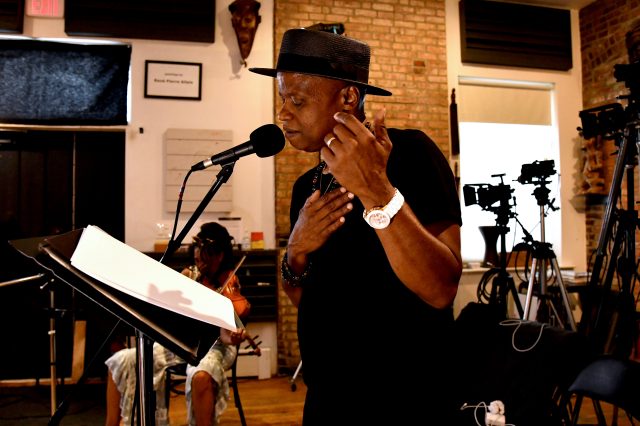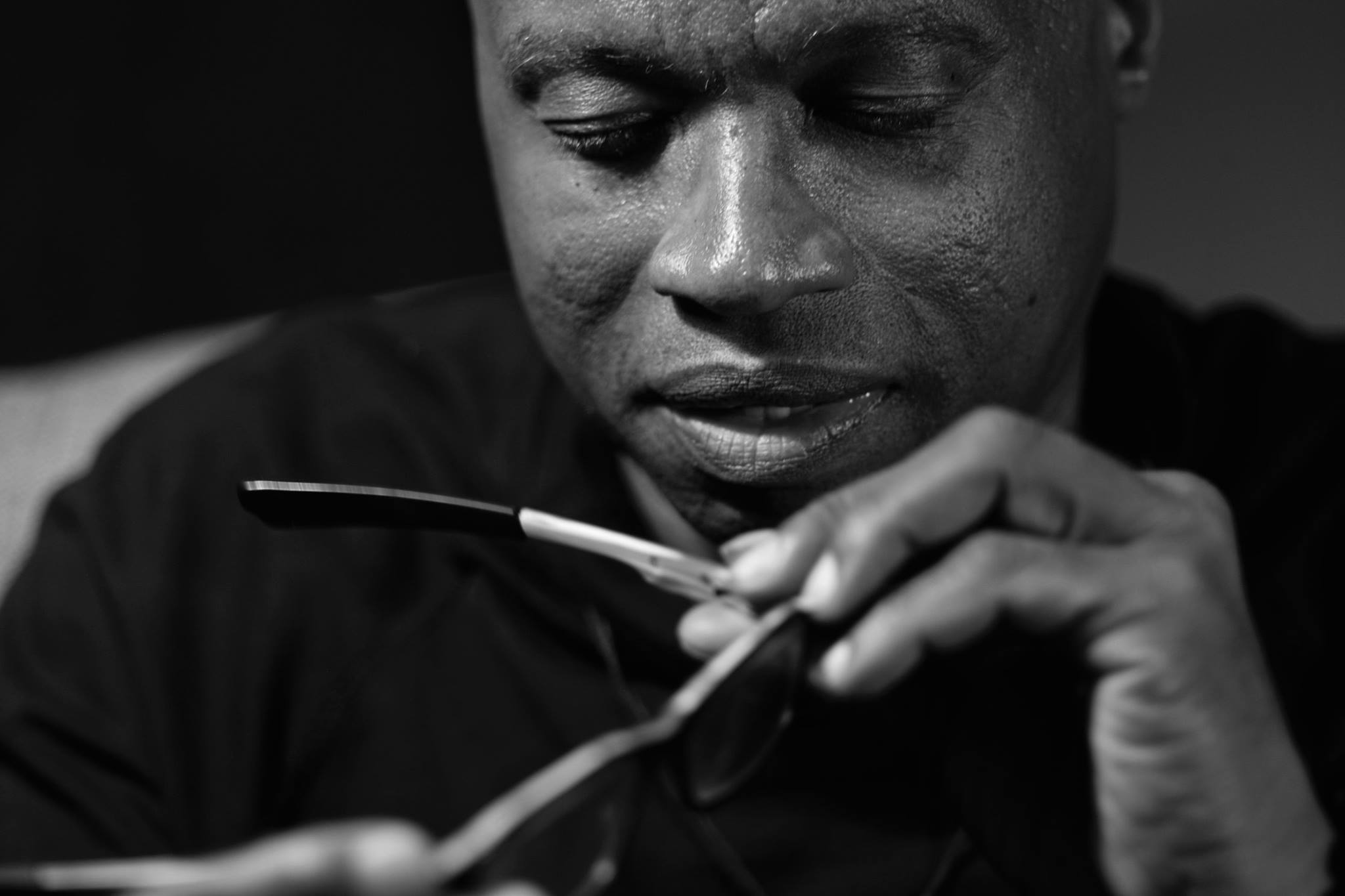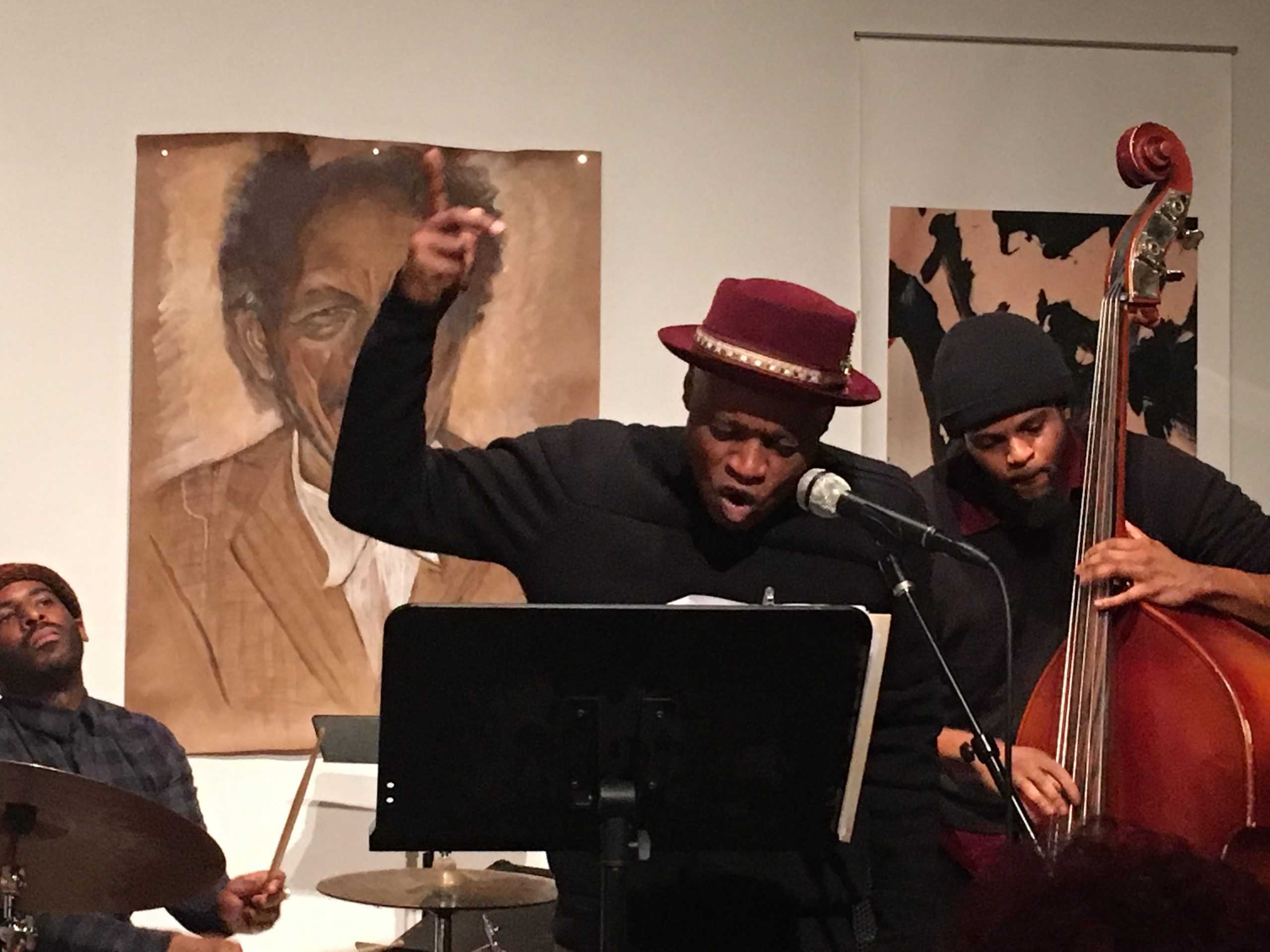
By Sym Posey | The Birmingham Times
Before Randall Horton became a professor at the University of New Haven, a private university in West Haven, Connecticut, he was a drug smuggler facing almost 15 years in prison at the Roxbury Correctional Institution in Hagerstown, Maryland.
“I spent almost five years on the inside. I am the only full tenured professor with seven felony convictions that I know of,” said Horton, who was incarcerated from 1996 to 2000.
Born and raised in Birmingham, Horton graduated from A.H. Parker High School and left Alabama to begin his education at Howard University in Washington, D.C., where he studied economics. During his senior year in college, he dropped out because of exposure to the drug trade.
“I got turned on to that and spent 30 odd years in that life. I was all over the world. If you’ve ever seen ‘Snowfall,’ that’s my life. It just happened on the East Coast,” said Horton jokingly, referring to the American crime drama television series that revolves around the first crack epidemic and is primarily set in Los Angeles, California.
The series was created by renowned African American director, screenwriter, and producer John Singleton, who passed away in 2019.
Horton, while serving his time in Montgomery County, Maryland, was a part of the Jail Addiction Services (JAS) program to shave a few years off his sentence.
“One of the components of the program was that you had to write,” he said. “They would ask tough questions that helped you get in touch with your inner self. I wasn’t an expressive person like that. I was in that life, [where] the less you said the better. I began to write in my cell, and I really started to take my writing seriously. I started to feel different about myself.”

Promise Made
Horton gained recognition for his writing, so much so that he made a promise to one of his teachers to never stop.
“She had been working with people to get them alternatives to incarceration, [and] she told me, ‘Go do your time, and we will bring you back here [to Seven Locks Detention Center in Montgomery County, Maryland], and do what they call a motion for reconsideration of sentencing,’” said Horton, who had served time in facilities in various states, including Maryland and Virginia, as well as in Nags Head, North Carolina, and Atlanta, Georgia.
“I was looking at doing 15 years in prison at least,” he continued.
While serving time in a Baltimore, Maryland, facility, Horton continued to write short stories and essays. He also did a lot of reading, and one day while reading The Washington Post newspaper in the prison’s day room he came across a poem by E. Ethelbert Miller, an African American professor, poet, and literary activist who taught at Howard University around the time Horton attended.
“I wrote him a letter and told him, ‘You don’t know me,’ and I gave him my whole story,” Horton said. “He wrote me back, and that [was the beginning of] a long mentorship.”
Horton credits Miller with giving him the space to find himself as a writer and a poet.
After five years, Horton was called back to the place he got sentenced. While the district attorney opposed the motion for reconsideration, Horton’s father served as his character witness, and he “brought everyone to tears,” said Horton.
“[My father] talked about me in this third person. He gave the history of me, all the things I could do, and how I had a support system. He really laid it all out there. My lawyer was crying, I’m crying. The judge asked me if I had anything to say. I stood up and began crying,” Horton recalled.
After spending five years behind bars, Horton earned multiple degrees, including a doctorate in English and creative writing from the University at Albany of the State University of New York (SUNY).
During the same time, he also published a book, “Hook: A Memoir,” which explores his personal spiral from an unassuming Howard University undergraduate to a homeless drug addict, international cocaine smuggler, and incarcerated felon.
Promises Kept

Today, Horton is an award-winning author and poet, as well as and professor at the University of New Haven. He also is the co-leader of Radical Reversal, an experimental poetry band renowned for its innovative approach to the arts by emphasizing the transformative power of music and poetry. The group also focuses on amplifying the dialogue surrounding incarceration and showcasing rehabilitation equity through creative outlets.
“I wanted to do something that contributed to the discourse of the criminal justice system and the prison industrial complex … from an artistic point of view,” Horton said after recent performances at the Birmingham Museum of Art (BMA) and Alabama State University, in Montgomery, Alabama.
Radical Reversal’s sound crosses many boundaries of music and poetry through literary text. It also is part of a larger effort—the Radical Reversal nonprofit organization—to spread the message about how art can play a pivotal role in confronting the criminal legal system by centering the voices of those impacted through the arts.
The band Radical Reversal performs in colleges and universities as a band, and the nonprofit works with interested detention centers and correctional departments to establish creative spaces directly inside the facilities to provide seminars, workshops, and performances that keep individuals engaged.
“Radical Reversal’s inception was always a performance group, doing social justice issues. Being that I was system impacted, we were thinking about ways to talk about things in that space. People make mistakes, but people are more than capable of coming back from those mistakes if you give them chances,” he said. “I don’t think I’m here without those series of chances, so that’s something I want to amplify, as well.”
In 2022, Radical Reversal received a $65,000 Equity in Verse grant for general operating support from the Poetry Foundation, an organization that evolved from the Modern Poetry Association, which was founded in 1941 to support the publication of Poetry magazine. Since then, Radical Reversal has expanded its mission, including efforts to strengthen its pilot program at the Jefferson County Youth Detention Center (YDC) in Birmingham with an acoustic makeover and continued support for the facility’s Resident Teaching Artists.
Radical Reversal also played a key role in the Birmingham Museum of Art’s Music at the Museum, a program launched last year to offer guests a relaxing evening of enjoying music as they peruse the galleries. The group kicked off the first show of 2024 in late January.
To learn more about Radical Reversal, visit the organization’s website, radicalreversal.org. You also can follow on Facebook (Radical Reversal), Instagram (@radical.reversal), and Twitter/X (@Radical Reversal).




